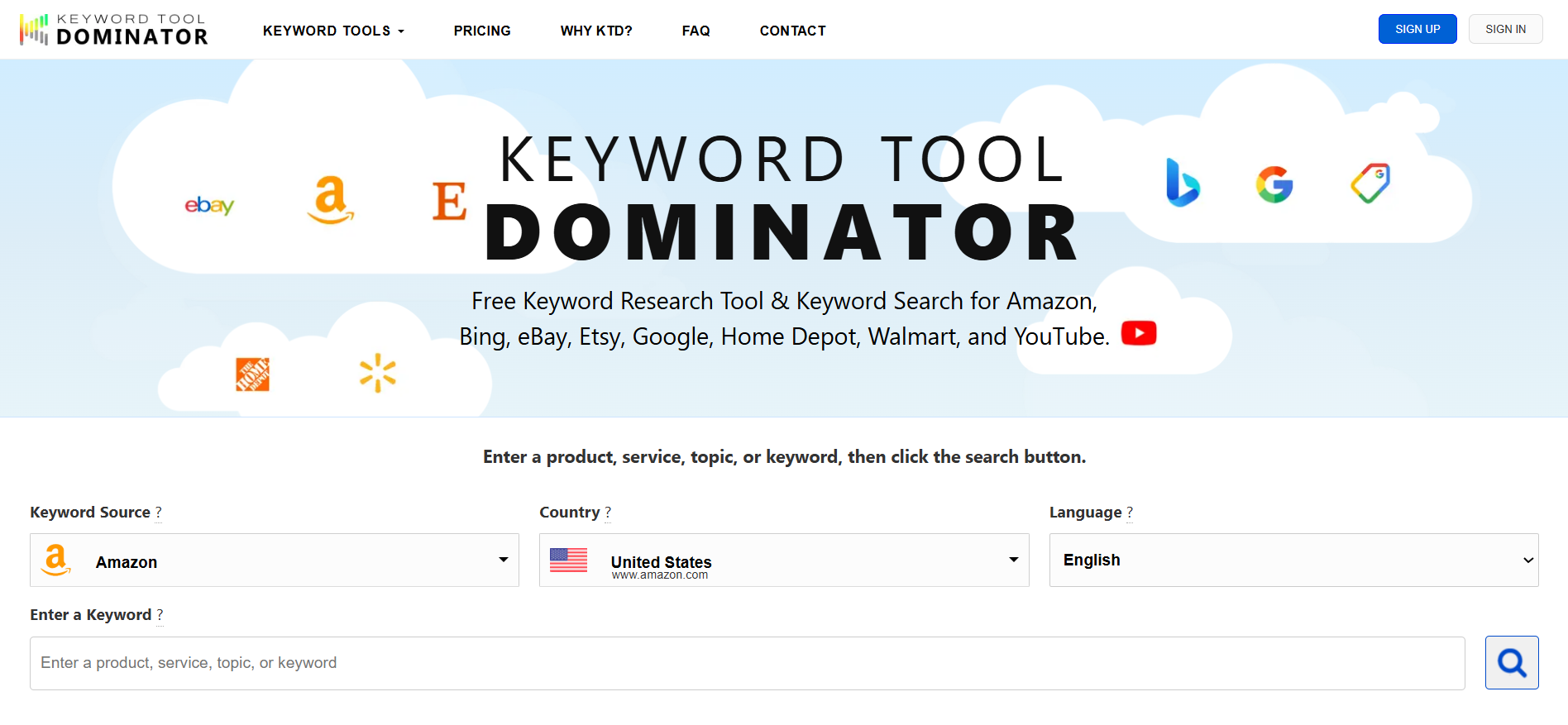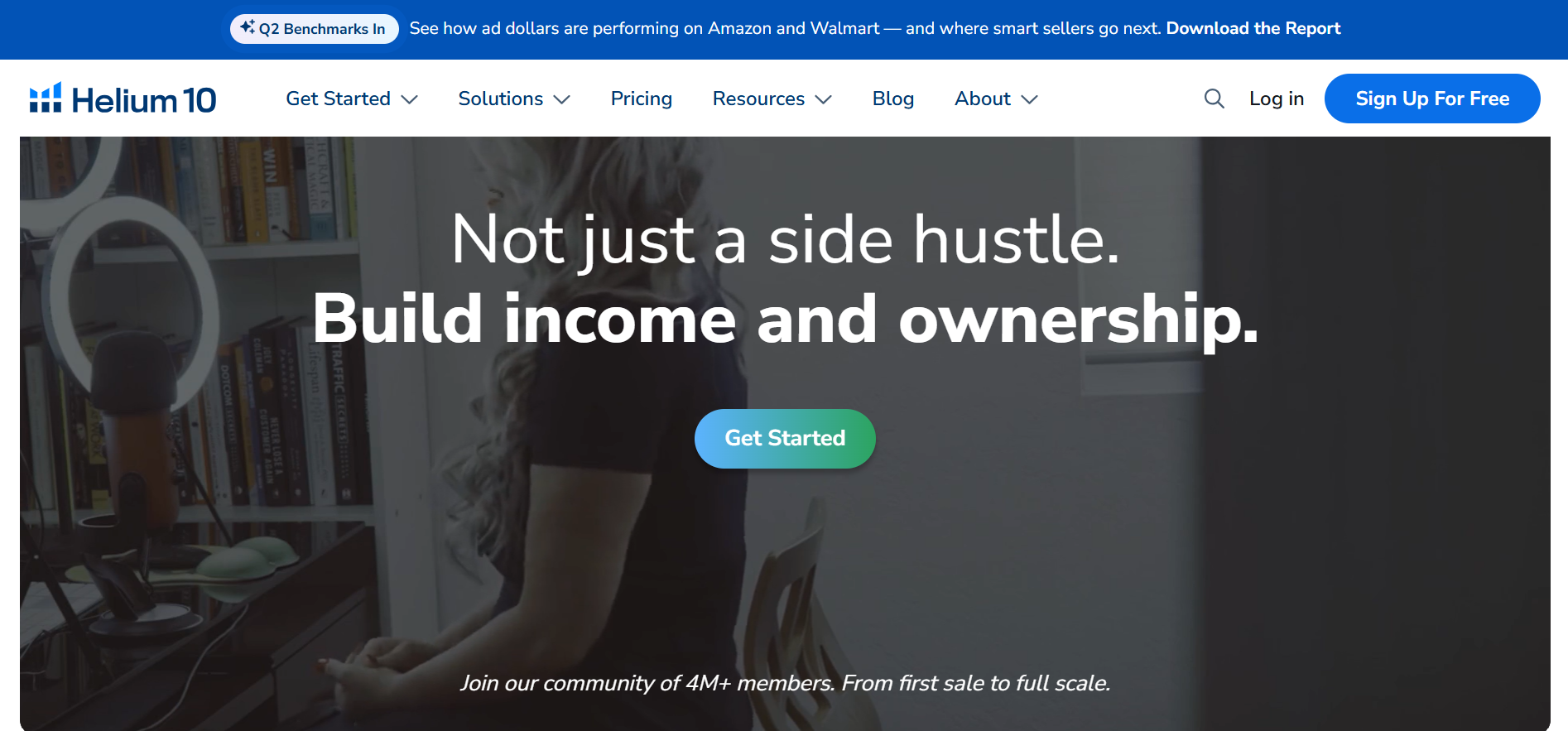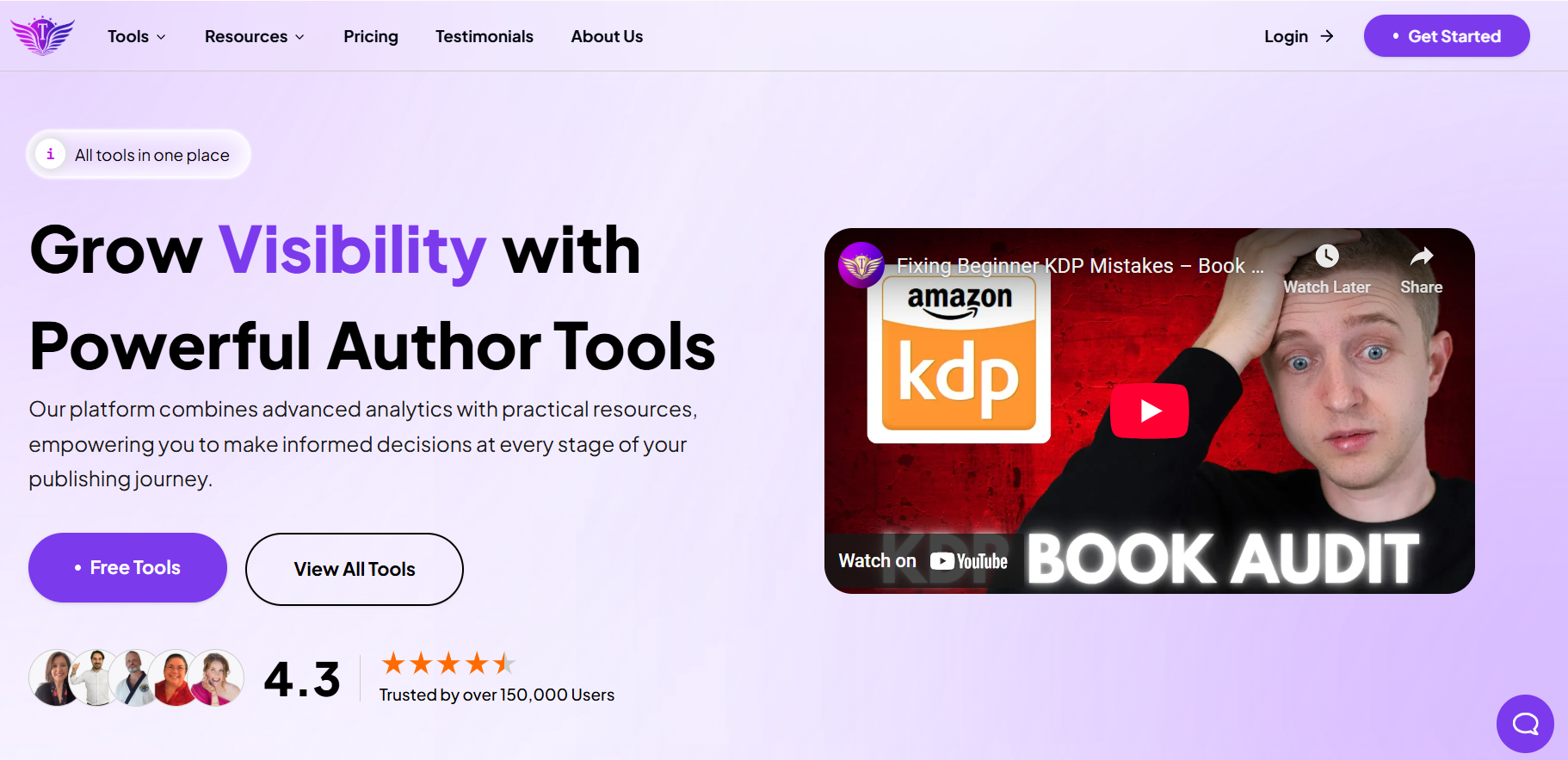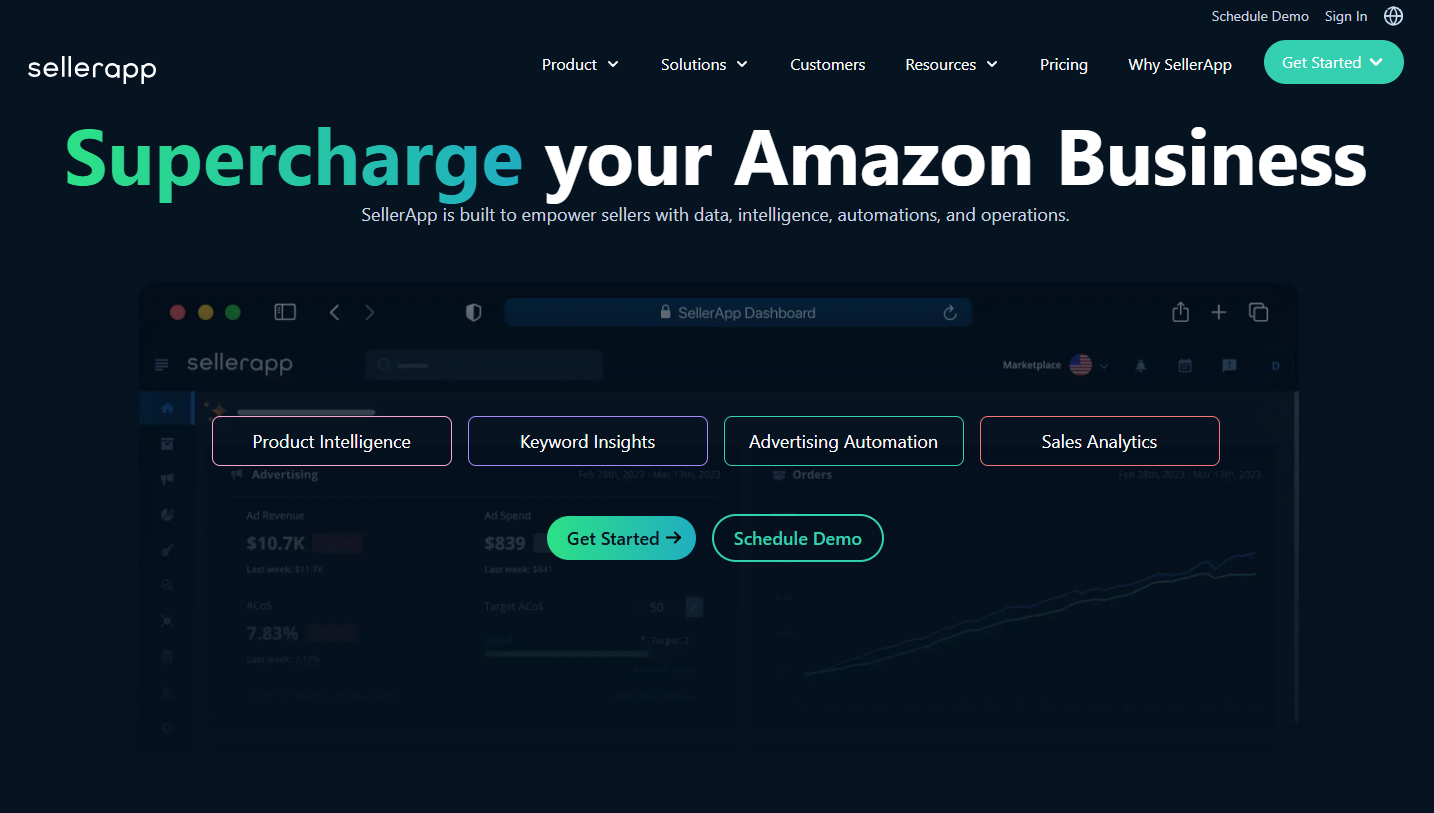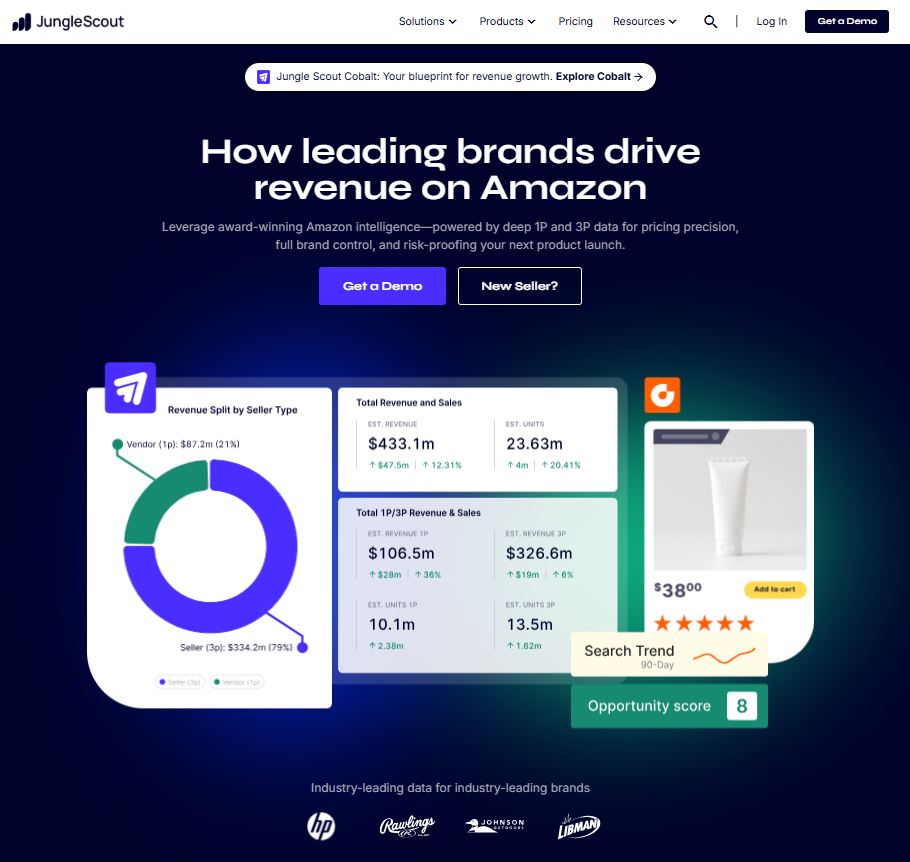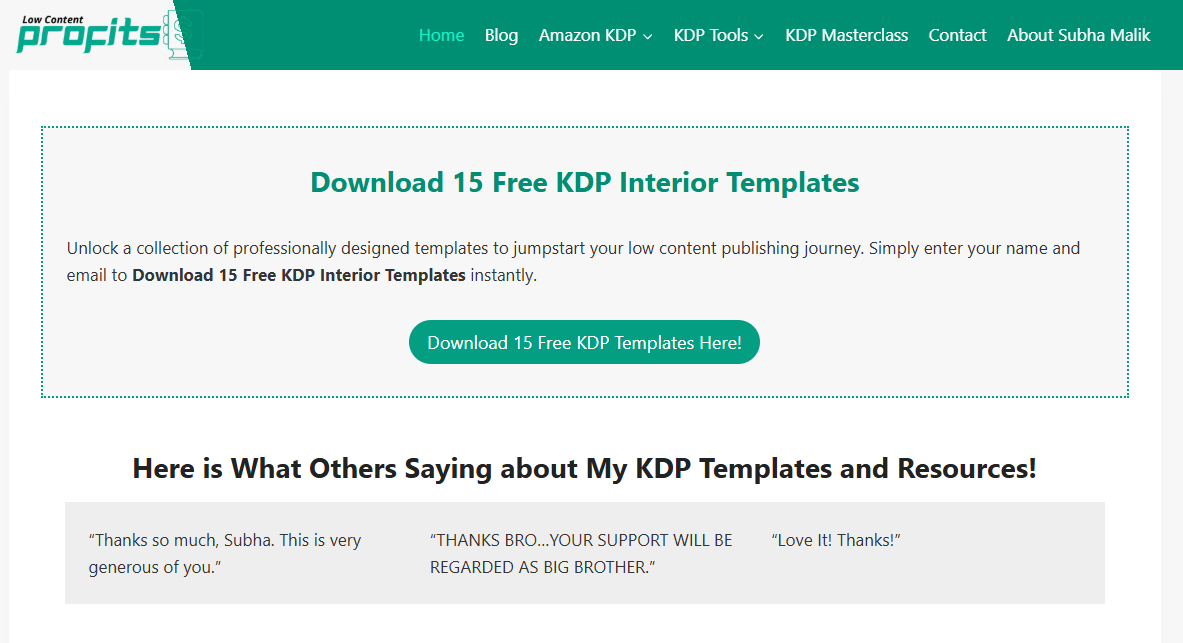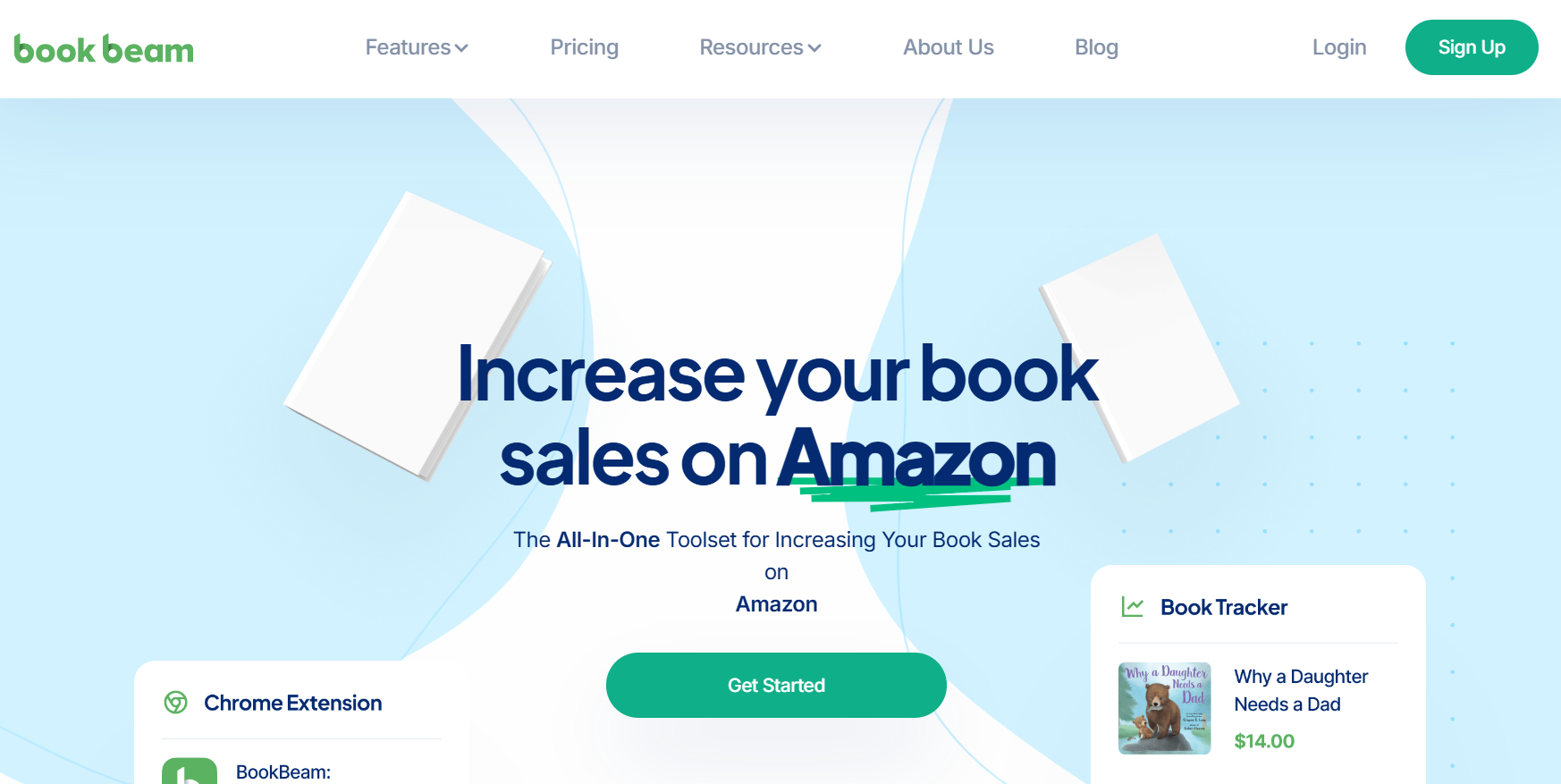Free Amazon KDP Keyword Tool: Your Key to Better Book Sales
Self-publishing on Amazon KDP is exciting, but getting your book noticed can feel like a slog. A free Amazon KDP keyword tool is a game-changer for authors who want their work to stand out. These tools help you dig up the right keywords that readers actually search for, boosting your book’s chances ofpopping up in Amazon’s results. No need to spend hours guessing what terms work-free tools make it easier to find what clicks with your audience. They’re not perfect, but they’re a solid starting point for any author on a budget. Let’s explore how these tools can help you get your book in front of more eyes.
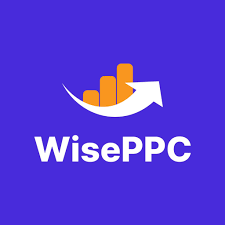
1. WisePPC
We offer a platform with a free keyword research tool as part of our beta program, designed to help KDP authors and Amazon sellers optimize their ad campaigns. Authors can use the tool to generate relevant keywords by analyzing real-time data from Amazon’s Ads API and Seller Central, with features like advanced filtering and historical metrics charts to identify high-performing search terms. The beta version is free, requiring no credit card, and includes access to bulk actions, gradient-based metric highlighting, and placement performance analysis, though some features like AI-driven bid automation are still in development and will be fully available in paid plans after the beta phase ends.
Our tool supports authors across multiple Amazon marketplaces, allowing for region-specific keyword strategies. The free beta access provides a solid starting point for testing keyword performance, with long-term data storage that outlasts Amazon’s short retention period. Paid plans, required post-beta, will unlock deeper analytics, multi-account dashboards, and automated inventory forecasting. As beta testers, authors can also provide feedback to shape the tool’s future, making it a practical choice for those looking to refine their KDP listings with data-driven insights.
Key Highlights:
- Free beta access includes keyword research with real-time data analysis
- Supports multiple Amazon marketplaces for targeted keyword strategies
- Features bulk actions and advanced filtering for efficient campaign management
- Long-term data storage surpasses Amazon’s retention period
- Paid plans post-beta will include AI-driven automation and multi-account support
Who it’s best for:
- KDP authors testing keyword strategies during the free beta phase
- Sellers managing campaigns across multiple Amazon regions
- Users wanting to provide feedback to shape a developing tool
Contact Information:
- Website: wiseppc.com
- LinkedIn: www.linkedin.com/company/wiseppc
- Facebook: www.facebook.com/people/Wise-PPC/61573154427547
- Instagram: www.instagram.com/wiseppc
2. Keyword Tool
Keyword Tool provides a straightforward way for Amazon sellers to find keywords that help their products stand out. By tapping into Amazon’s autocomplete feature, it generates hundreds of long-tail keywords based on a single seed term, making it useful for optimizing product listings or planning ad campaigns. The free version allows users to explore keyword suggestions across various Amazon marketplaces and languages, which is handy for those targeting specific regions. For users needing more depth, the paid version, Keyword Tool Pro, doubles the keyword output and adds estimated search volume data, along with features to streamline the research process.
Sellers can select from multiple Amazon regional websites and languages to tailor their keyword searches. The tool’s interface is simple, presenting keywords in the order Amazon suggests, with the paid version offering extra insights like search volume estimates to help prioritize terms. It’s a practical choice for those starting out or working with limited budgets, though it lacks some advanced analytics found in other tools.
Key Highlights:
- Uses Amazon’s autocomplete to generate long-tail keywords quickly
- Supports multiple Amazon marketplaces and languages for targeted research
- Free version available with basic keyword suggestions
- Paid version (Keyword Tool Pro) offers double the keywords and search volume estimates
- Simple interface for copying and using keywords in listings
Who it’s best for:
- New Amazon sellers looking for a free, easy-to-use keyword tool
- FBA sellers or affiliates focusing on specific regional markets
- Users who want quick keyword lists without complex analytics
Contact Information:
- Website: keywordtool.io
- Phone: +852 5803 8880
- Email: [email protected].
- Address: 9/F, Suite 901 Hing Yip Commercial Centre, 272-284 Des Voeux Road, Central, Hong Kong
3. Keyword Tool Dominator
Keyword Tool Dominator offers a free Amazon keyword tool designed to help sellers uncover search terms that resonate with their audience. By leveraging Amazon’s search suggestions, it pulls thousands of keywords in seconds, with options to filter by department, marketplace, or search mode (Normal, Broad, Precise). The free version limits users to two searches per day, but it includes features like a Popularity Score and Hot Keywords to highlight trending terms. The paid plans, starting with the Plus tier, unlock more searches, up to thousands of keyword suggestions daily, and tools like keyword export to CSV and word frequency analysis for backend optimization.
The tool supports a wide range of Amazon marketplaces, from the United States to Japan and India, making it versatile for sellers targeting diverse regions. Its focus on KDP keywords, such as those for journals or romance books, is a plus for authors, while features like filtering by Popularity Score help refine results. It’s a solid option for those who need quick, actionable keywords without diving too deep into analytics.
Key Highlights:
- Generates thousands of keywords using Amazon’s search suggestions
- Free version offers two daily searches with Popularity Score and Hot Keywords
- Paid plans (Plus and above) include CSV export and word frequency analysis
- Supports multiple Amazon marketplaces and specific departments like Books
- Offers search modes (Normal, Broad, Precise) for tailored results
Who it’s best for:
- KDP authors seeking keywords for books, journals, or coloring books
- Sellers targeting specific Amazon marketplaces or product categories
- Budget-conscious users who need a free tool with upgrade options
Contact Information:
- Website: www.keywordtooldominator.com
4. Helium 10
Helium 10’s free Amazon keyword tool, called Magnet, helps sellers find keywords to boost their product listings’ visibility. It uses Amazon’s autocomplete to generate keyword suggestions, with filters to narrow down results by metrics like search volume or competition. The free trial requires signing up and offers limited access, while paid plans (starting with Starter) include advanced features like search volume trends, PPC bid recommendations, and integration with other Helium 10 tools for deeper analysis. The paid Diamond plan also supports TikTok Shop features, appealing to sellers expanding beyond Amazon.
The tool covers multiple Amazon marketplaces, allowing users to target specific regions. Its focus on metrics like keyword sales and low-competition terms makes it useful for both SEO and PPC campaigns, especially for KDP authors or FBA sellers. While the free trial is limited, it gives a glimpse of the tool’s capabilities, and the paid plans offer more robust data for those scaling their businesses.
Key Highlights:
- Uses Amazon autocomplete for keyword suggestions with filtering options
- Free trial available with sign-up, offering limited access to Magnet
- Paid plans (Starter, Platinum, Diamond) include search volume trends and PPC insights
- Supports multiple Amazon marketplaces for region-specific keyword research
- Integrates with other Helium 10 tools for comprehensive seller analytics
Who it’s best for:
- KDP authors and FBA sellers needing keywords for SEO and PPC
- Sellers expanding to multiple Amazon marketplaces
- Users who want a free trial before committing to advanced paid features
Contact Information:
- Website: www.helium10.com
- Email: [email protected]
- LinkedIn: www.linkedin.com/company/helium10
- Facebook: www.facebook.com/Helium10Software
- Twitter: x.com/H10Software
- Instagram: www.instagram.com/helium10software
5. Self Publishing Titans
Self Publishing Titans offers tools for Amazon KDP authors, including a free Chrome extension called Titans Quick View and a paid extension, Titans Pro, for keyword and niche research. The free version provides basic Amazon search suggestions and niche analysis metrics like average Best Seller Rank, price, and reviews, which authors can download as an Excel file for further use. The paid Titans Pro version adds estimated search volume, competitor counts, and a custom algorithm for assessing niche demand and opportunity, making it easier to pinpoint profitable keywords. Authors can use these tools directly in Amazon’s search bar, streamlining the process of finding relevant terms for book listings or ad campaigns.
The platform supports research across all Amazon marketplaces, catering to authors targeting specific regions. The free Titans Quick View is straightforward, focusing on quick insights, while the paid Titans Pro, available via monthly or lifetime subscriptions, offers deeper data for more strategic planning. A monthly Hobbyist plan provides limited access to tools, while higher-tier plans unlock additional features like competitor and keyword tracking. It’s a practical setup for authors who want to save time on research, though the free version is more limited compared to paid options.
Key Highlights:
- Free Titans Quick View extension offers niche metrics and downloadable data
- Paid Titans Pro includes search volume, competitor analysis, and opportunity scores
- Supports all Amazon marketplaces for region-specific keyword research
- Allows Excel export of keyword and niche data for easy use
- Monthly and lifetime subscription options for paid features
Who it’s best for:
- KDP authors seeking free tools for basic keyword and niche research
- Sellers targeting multiple Amazon regions with tailored strategies
- Authors needing downloadable data for SEO or ad campaign planning
Contact Information:
- Website: www.selfpublishingtitans.com
6. Hidden Gems Books
Hidden Gems Books provides a free Amazon Keyword Organizer tool to help KDP authors manage their keywords efficiently. Authors can input a list of keywords or phrases, and the tool organizes them into seven fields, each with a fifty-character limit, to fit Amazon’s KDP Bookshelf requirements. It removes redundant terms and optimizes space, ensuring keywords are arranged logically for better search visibility. The tool is simple to use, with a clear interface for entering, reviewing, and copying keywords directly into the KDP dashboard.
Beyond the keyword tool, Hidden Gems Books offers other author services like ARCs, editing, and cover design, though these are separate from the free tool. The Keyword Organizer doesn’t generate keywords but focuses on structuring them effectively, which is useful for authors who already have a keyword list. It’s a no-frills option for those looking to tidy up their metadata without extra costs, though it lacks features like keyword generation or analytics found in other tools.
Key Highlights:
- Free tool organizes keywords into seven fifty-character fields
- Removes duplicate keywords and optimizes space for KDP Bookshelf
- Supports comma-separated or line-by-line keyword input
- Allows easy copying of organized keywords for KDP dashboard
- Complements other author services like editing and cover design
Who it’s best for:
- KDP authors with existing keyword lists needing organization
- Budget-conscious authors wanting a free, simple metadata tool
- Users seeking additional services like ARCs or editing alongside keyword management
Contact Information:
- Website: www.hiddengemsbooks.com
- Email: [email protected]
- Facebook: www.facebook.com/HGBookReviews
- Twitter: x.com/HiddenGemsBooks
- Instagram: www.instagram.com/hgbooks
7. SellerApp
SellerApp offers a free Amazon keyword research tool that helps authors and sellers find relevant search terms to improve their product listings. By entering a product name or keyword, users can generate a list of long-tail and generic keywords, complete with search volume and CPC data, to optimize KDP books or other Amazon products. The tool emphasizes understanding customer search behavior, encouraging users to think like shoppers to select effective keywords. A free plan is available with basic functionalities like product research and overview, while paid plans unlock advanced features such as competitor keyword tracking and AI-powered advertising insights.
The platform supports keyword tracking to monitor performance and identify which terms drive better rankings on Amazon’s search results. Users can explore keywords across various Amazon marketplaces, making it useful for targeting specific regions. The free tool updates every few days to provide current data, but for deeper analytics, such as PPC campaign optimization, a paid subscription is required. It’s a practical option for authors who want to start with a free tool and scale up as needed.
Key Highlights:
- Free tool generates long-tail and generic keywords with search volume and CPC
- Supports keyword tracking to analyze ranking performance
- Free plan includes basic product research and overview features
- Paid plans offer competitor insights and AI-driven advertising tools
- Covers multiple Amazon marketplaces for region-specific strategies
Who it’s best for:
- KDP authors seeking free keyword research with tracking capabilities
- Sellers targeting specific Amazon regions with tailored keyword lists
- Users who may upgrade to paid plans for advanced analytics and PPC tools
Contact Information:
- Website: www.sellerapp.com
- Phone: +1-256-363-0567
- Email: [email protected]
- Address: 4819 Bryant Mdws Dr, Spring, TX 77386, United States
- LinkedIn: www.linkedin.com/company/sellerapp
- Facebook: www.facebook.com/sellerapp
- Twitter: x.com/SellerApp_Inc
- Instagram: www.instagram.com/sellerapp_insta
8. SellerSprite
SellerSprite provides a free browser extension for Amazon keyword research, pulling real-time data like keyword rankings and Best Seller Rank directly from Amazon pages. The extension offers a three-day free trial of premium features, including detailed ASIN analytics and listing optimization tracking, but full access requires a paid subscription after the trial. A free plan includes tools like a Sales Estimator, Listing Builder, and Profitability Calculator, though with limited usage. Paid plans unlock comprehensive features like competitor monitoring and advanced keyword analytics.
The tool supports research across multiple Amazon marketplaces, allowing authors to focus on specific regions. It emphasizes practical data, such as keyword trends updated monthly and sales data refreshed daily, to help users refine their KDP strategies. The free extension is a good starting point for authors needing quick insights, but its full potential is tied to paid subscriptions for ongoing use.
Key Highlights:
- Free browser extension with real-time keyword and ASIN data
- Three-day free trial of premium features like listing and ad tracking
- Free plan includes tools like Sales Estimator and Listing Builder
- Paid plans offer competitor monitoring and advanced analytics
- Supports multiple Amazon marketplaces for targeted research
Who it’s best for:
- KDP authors wanting free, real-time keyword data via a browser extension
- Sellers exploring multiple Amazon regions with limited budgets
- Users considering paid plans for deeper competitor and keyword insights
Contact Information:
- Website: www.sellersprite.com
- E-mail: [email protected]
- Facebook: www.facebook.com/sellersprite.us
- Twitter: x.com/SellerSprite_EN
9. Jungle Scout
Jungle Scout offers a Keyword Scout tool within its suite of Amazon seller tools, designed to help KDP authors and sellers identify high-demand keywords for their book listings. Authors can input a product or category to generate a list of relevant search terms, including historical data and search trends, which can be used to optimize book titles and descriptions. The tool supports tracking keyword performance over time, allowing authors to adjust their strategies based on how terms perform in Amazon’s search results. It operates across multiple Amazon marketplaces, making it useful for authors targeting specific regions.
The Keyword Scout tool is available through a seven-day free trial, which provides access to basic keyword research and market insights. After the trial, a paid subscription is required for full access, unlocking advanced features like competitor analysis and detailed sales analytics. The free trial is a good starting point for authors new to KDP, offering enough functionality to test keyword strategies before committing to a paid plan. The tool’s focus on real-time consumer demand makes it a practical choice for authors looking to align their listings with current search trends.
Key Highlights:
- Keyword Scout generates relevant search terms with historical data and trends
- Seven-day free trial includes basic keyword research and market insights
- Paid plans unlock competitor analysis and advanced sales analytics
- Supports multiple Amazon marketplaces for region-specific keyword strategies
- Tracks keyword performance to refine listing optimization
Who it’s best for:
- KDP authors wanting a trial of keyword tools before committing to a subscription
- Sellers targeting multiple Amazon regions with data-driven keyword choices
- Users needing historical keyword data for long-term strategy planning
Contact Information
- Website: www.junglescout.com
- Address: 328 S. Jefferson St., Suite 1030, Chicago, IL 60661
- LinkedIn: www.linkedin.com/company/junglescout
- Facebook: www.facebook.com/amazonjunglescout
- Twitter: x.com/junglescout
- Instagram: www.instagram.com/junglescout_
10. Low Content Profits
Low Content Profits provides a free Amazon KDP Keyword Generator tailored for low and medium content book publishers. Authors can enter a seed keyword or phrase, such as “logbook” or “coloring book,” and the tool generates a list of up to ten long-tail keyword ideas. These suggestions can be copied and analyzed further for competition and demand, helping authors optimize their book listings for better visibility on Amazon. The tool is simple, with a focus on ease of use for those new to self-publishing.
The generator is entirely free, with no trial or paid version mentioned, making it accessible for authors on a budget. It’s designed specifically for KDP authors, particularly those creating low-content books like journals or planners, and doesn’t require a subscription or additional tools. While it lacks advanced features like search volume data or competitor tracking, its straightforward approach suits authors who want a quick way to brainstorm keyword ideas without extra complexity.
Key Highlights:
- Free tool generates up to ten long-tail keyword ideas
- No subscription or trial required for full access
- Tailored for low and medium content KDP books
- Simple interface for quick keyword brainstorming
- Copyable keyword suggestions for further analysis
Who it’s best for:
- New KDP authors needing a free, simple keyword generator
- Publishers of low-content books like journals or coloring books
- Authors on a budget who want straightforward keyword ideas
Contact Information:
- Website: lowcontentprofits.com
- Email: [email protected]
- Facebook: www.facebook.com/LowContentProfitsKdp
11. BookBeam
BookBeam offers a Keyword Generator tool for KDP authors, designed to produce extensive lists of relevant Amazon search terms. By entering a seed keyword, authors can access up to a thousand related keywords, which can be filtered by categories like Books, Kindle, or Audiobooks. The tool supports optimization for Amazon ad campaigns, allowing authors to copy keywords for “exact” or “phrase” match targeting. It operates across multiple Amazon marketplaces, including the US, UK, and several European regions, making it versatile for international publishing.
The Keyword Generator is part of BookBeam’s suite, accessible through a seven-day free trial that includes basic research tools and a self-publishing mini-course. After the trial, a paid subscription is required, with plans starting at a monthly fee, offering unlimited history, higher research limits, and AI-powered creation tools. The free trial is useful for authors testing keyword strategies, while paid plans provide deeper insights for scaling publishing efforts.
Key Highlights:
- Generates up to a thousand related keywords for Amazon listings
- Seven-day free trial includes basic research tools and a mini-course
- Paid plans offer unlimited history and AI-powered creation tools
- Supports multiple Amazon marketplaces for international keyword research
- Keywords can be copied for exact or phrase match ad campaigns
Who it’s best for:
- KDP authors wanting a trial of extensive keyword generation
- Publishers targeting international Amazon marketplaces
- Authors planning to scale with paid plans for advanced features
Contact Information:
- Website: bookbeam.io
- Email: [email protected]
- Facebook: www.facebook.com/bookbeam
Conclusion
Finding the right keywords for Amazon KDP can feel like a bit of a puzzle, but free tools make it a lot easier to piece together a solid strategy. These platforms, whether they generate long-tail suggestions, organize existing keywords, or pull real-time data, give authors a practical way to boost their book’s visibility without spending a dime upfront. Some come with trial periods or beta access, offering a taste of advanced features, while others stick to simple, no-frills functionality, which can be plenty for new authors just getting their feet wet.
What’s nice is that these tools cater to different needs-some focus on brainstorming keyword ideas, others on refining them for Amazon’s search system. Authors can pick what fits their workflow, whether they’re targeting specific regions or diving into low-content book niches. It’s worth trying a few to see which one clicks, as each has its own quirks and strengths. Ultimately, these free options are a great starting point for any KDP author looking to get their book noticed without breaking the bank.
Join the WisePPC Beta and Get Exclusive Access Benefits
WisePPC is now in beta — and we’re inviting a limited number of early users to join. As a beta tester, you'll get free access, lifetime perks, and a chance to help shape the product — from an Amazon Ads Verified Partner you can trust.
 No credit card required
No credit card required
 Free in beta and free extra month free after release
Free in beta and free extra month free after release
 25% off for life — limited beta offer
25% off for life — limited beta offer
 Access metrics Amazon Ads won’t show you
Access metrics Amazon Ads won’t show you
 Be part of shaping the product with your feedback
Be part of shaping the product with your feedback




